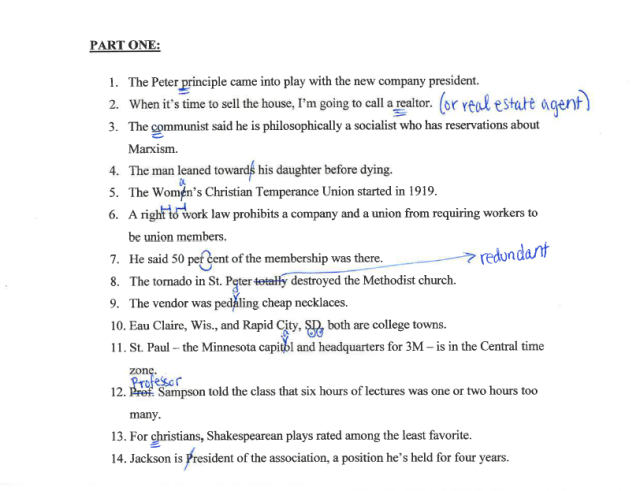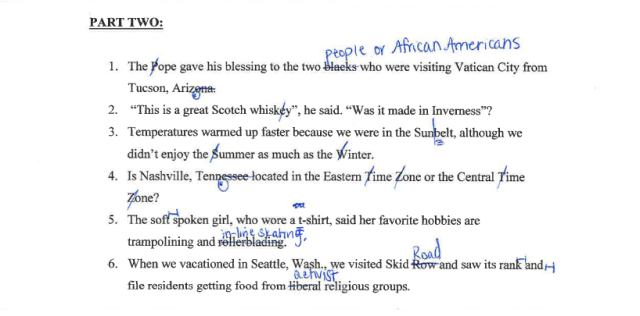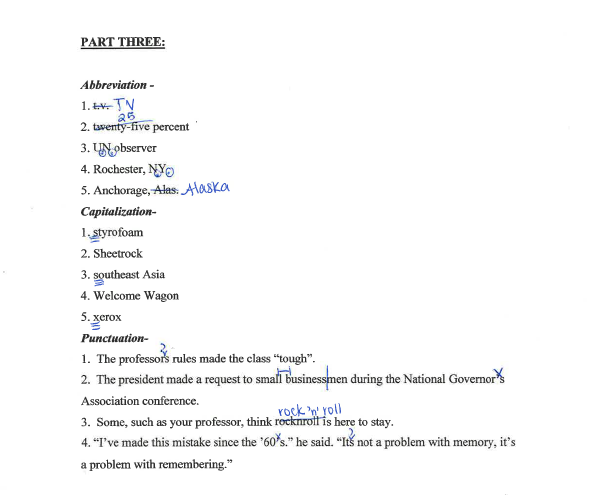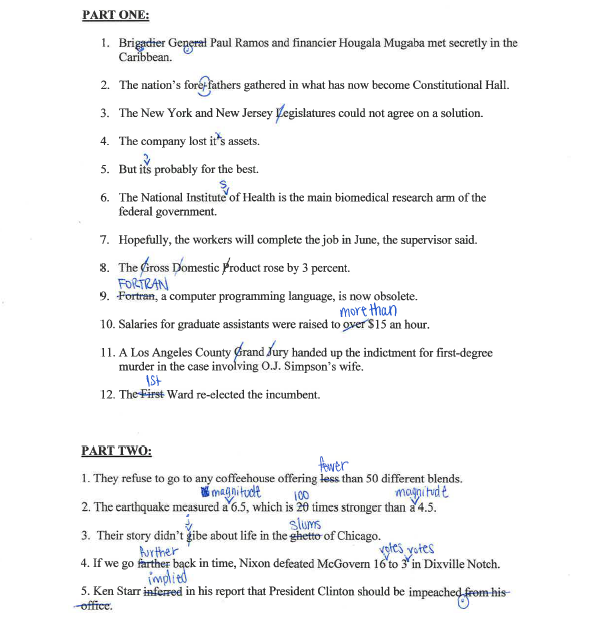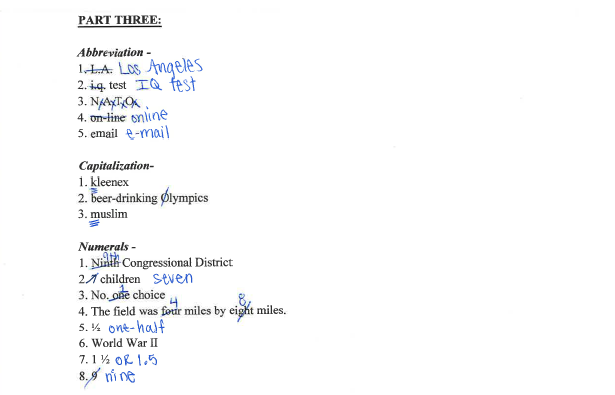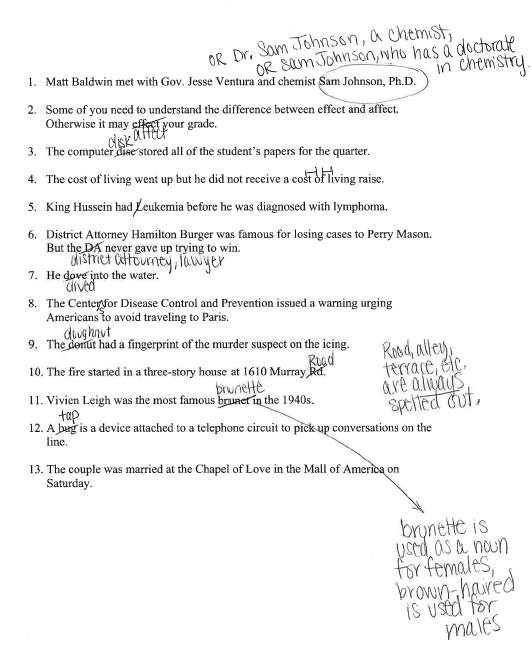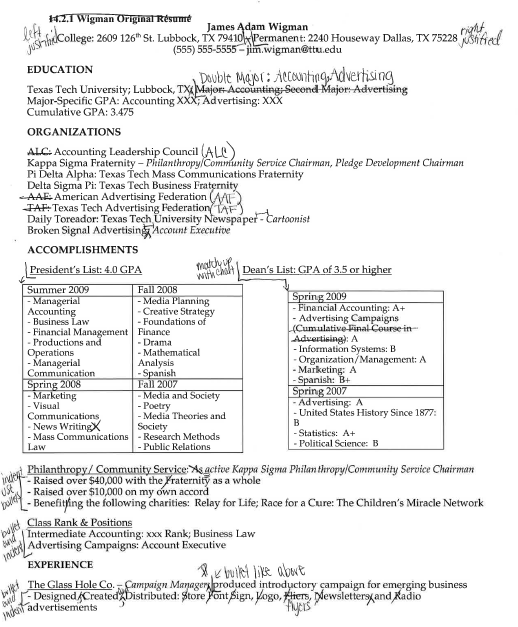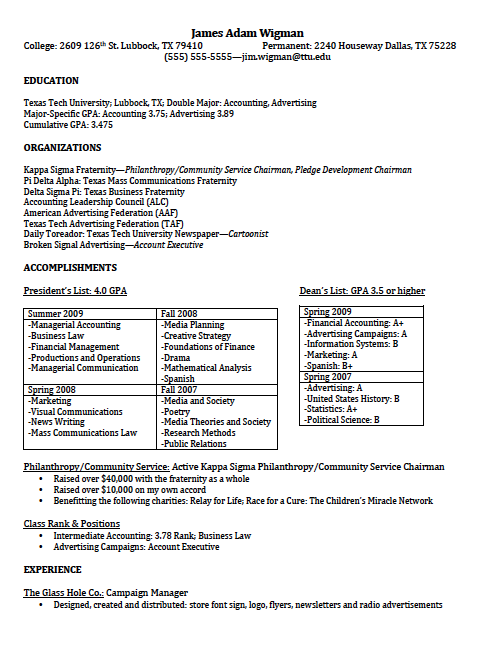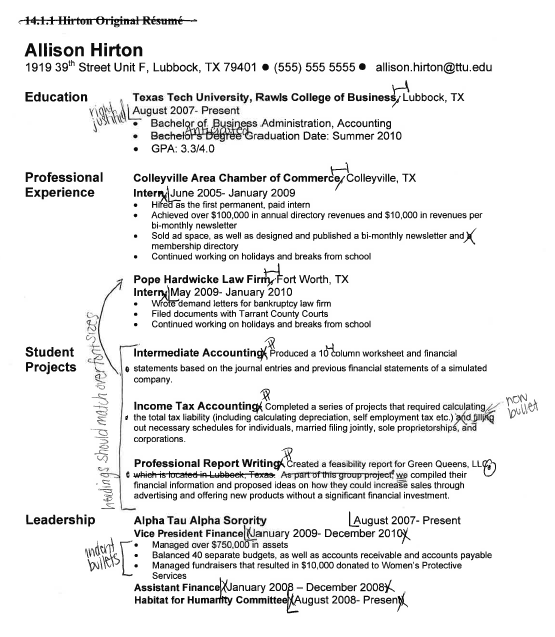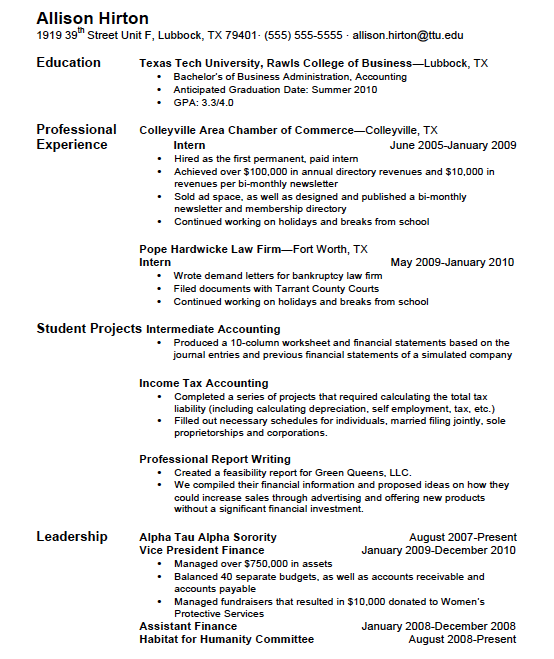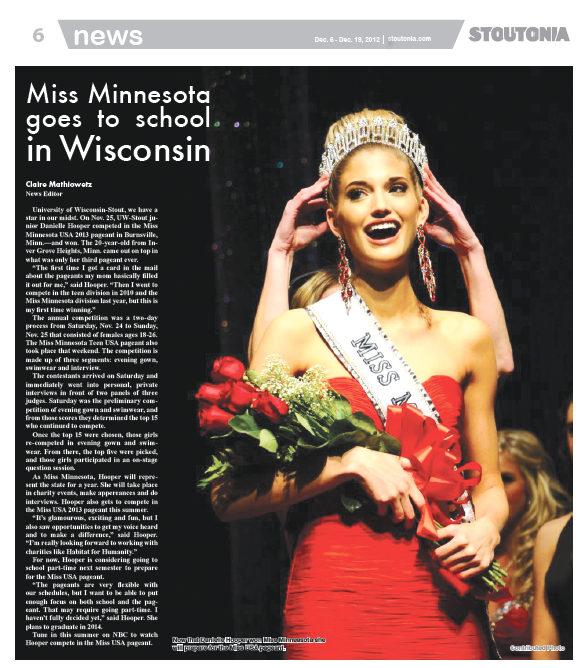This is the last of the common errors I have. Read carefully and learn something!
Explanations:
PART ONE:
- Principal refers to a person in charge, while principle is a noun that means fundamental truth. (See AP Stylebook 2010–principal/principle, pg. 229)
- The term real estate agent is preferred. Only use Realtor if you need to indicate the person is a member of the National Association of Realtors. (See AP Stylebook 2010–Realtor, pg. 240)
- According to AP Style, you must capitalize polictical parties, such as Communist, Conservative, Democrat and Liberal. (See AP Stylebook 2010–political parties and philosophies, pg. 220)
- Toward is never spelled with an “s”. (See AP Stylebook 2010–toward, pg. 282)
- Woman’s Christian Temperance Union
- Right-to-work should be hyphenated. (See AP Stylebook 2010–right-to-work, pg. 282)
- Percent is one word. (See AP Stylebook 2010–percent, pg. 282)
- Totally is redundant in this case. The church is destroyed–meaning completely and totally.
- You pedal when you ride a bicycle. When you sell something, you peddle it. (See AP Stylebook 2010–pedal/peddle, pg. 282)
- South Dakota is abbreviated as S.D. not SD. (See AP Stylebook 2010–state names, pg. 266)
- Capital is used in a financial sense. Capitol refers to U.S. capitol and therefore, the above edit is “STET”. (See AP Stylebook 2010–capitol, pg. 46)
- Professor should never be abbreviated in AP style. (See AP Stylebook 2010–professor, pg. 231)
- Christians, just as Muslims in my last post, must be capitalized.
- Only capitilize president when it is used as a formal title before a name. (See AP Stylebook 2010–president, pg. 231)
Explanations:
PART TWO:
- Pope is only capitalized when it serves as a title before a name. (See AP Stylebook 2010–pope, pg. 231) Blacks is a derogatory term. If possible, it should be avoided. The abbreviation of Arizona is Ariz. (See AP Stylebook 2010–state names, pg. 266)
- Whiskey is spelled with an “e”, unless in conjunction with Scotch. (See AP Stylebook 2010–whiskey/whiskeys, pg. 231)
- Sun Belt is two words and refers to states in the South and West. (See AP Stylebook 2010–Sun Belt, pg. 269)
- Tennessee is abbreviated as Tenn. (See AP Stylebook 2010–state names, pg. 266) When referring to the full name of a time zone, such as Eastern Standard Time, capitalize it, otherwise don’t capitalize “time zone”. (See AP Stylebook 2010–time zones, pg. 278)
- Soft-spoken is a modifier that needs to be hyphenated.
- Roads, terrace, drive, alley, etc. are always spelled out. (See AP Stylebook 2010–addresses, pg. 4) Rank-and-file as an adjective is hyphenated, but at a noun is not.(See AP Stylebook 2010–rank and file/rank-and-file, pg. 239)
Explanations:
PART THREE:
Abbreviation-
- Percents are always numerical.
- New York is abbreviated N.Y.
- Alaska, Hawaii, Idaho, Iowa, Maine, Ohio, Texas and Utah are never abbreviated.
Capitalization-
- Styrofoam, Sheetrock and Xerox are brand names
Punctuation-
- Commas are used to show possession.
- There is a difference between small-business men and businessmen.
- Rock ‘n’ roll (in AP style) not rock and roll.
- Decades are formatted ’60s, ’70s, ’80s, etc.
